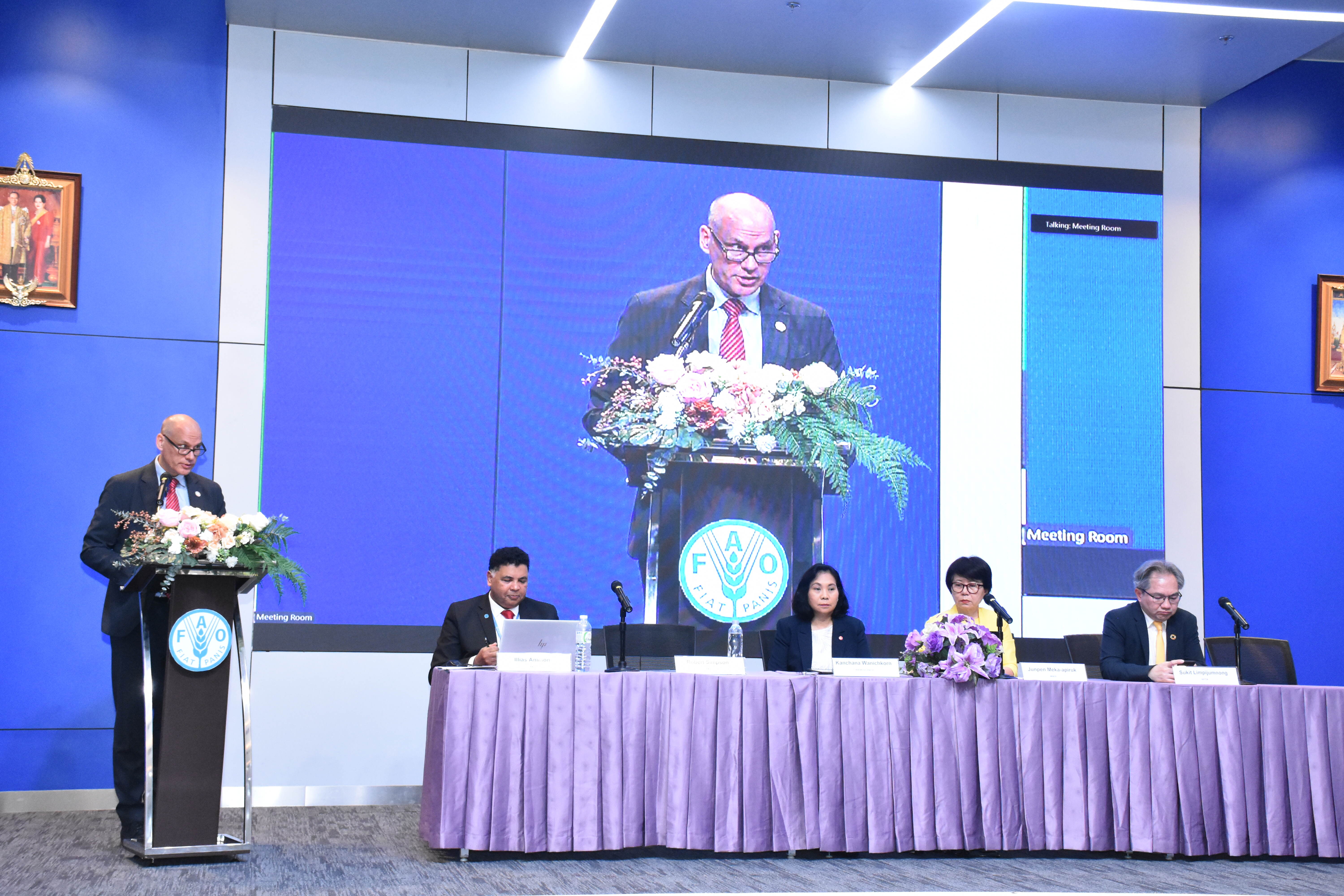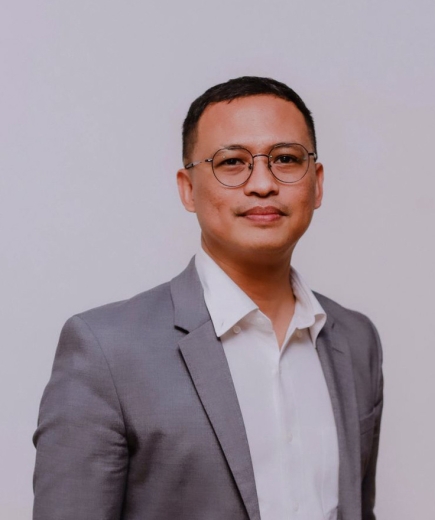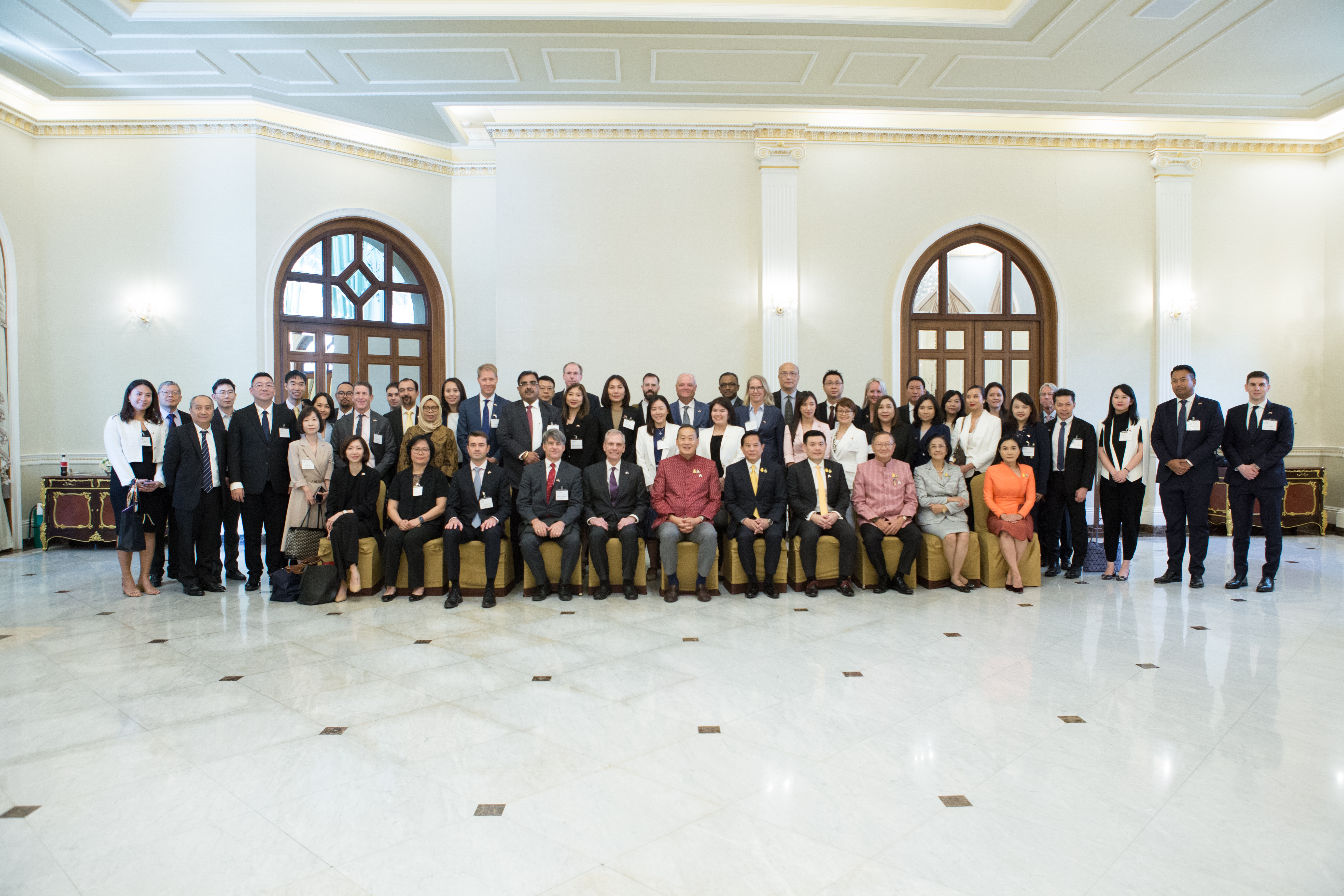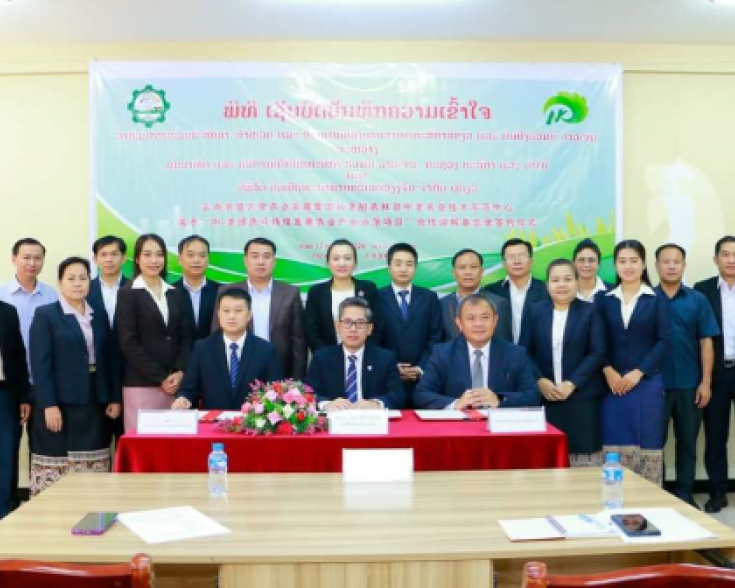Discussion to Advance Bioeconomy in Southeast Asia by FAO-BIOTECH

On May 20, the Food and Agriculture Organization of the United Nations (FAO) met in Bangkok with Thailand’s National Center for Genetic Engineering and Biotechnology (BIOTECH) to organize the first high-level event on advancing bioeconomy for sustainable food and agriculture in Southeast Asia. More than 100 high-level participants from Cambodia, Indonesia, Lao People’s Democratic Republic, Malaysia, the Philippines, Singapore, Thailand, and Vietnam gathered to explore bioeconomy opportunities and collaborative mechanisms as Southeast Asia transitions toward an agrifood system. Robert Simpson, FAO’s Regional Programme Leader, shared the need to diversify income to enhance the livelihood of farmers through optimizing existing biomass use and sustainably increasing biomass production. Kanchana Wanichkorn, Director of Sectoral Development of the ASEAN Economic Community highlighted various ASEAN Bioeconomy-related initiatives: ASEAN Carbon Neutrality Strategy, ASEAN Circular Economy Framework, ASEAN Blue Economy Framework, and Action Plan for Sustainable Agriculture in ASEAN.
At the meeting, the Thai Government highlighted the Bio-Circular-Green Economy (BCG) as a strategy to advance biological and cultural diversity into competitive advantages through science, technology, and innovation. Ms. Sirinya Lim from the Office of National Higher Education Science Research and Innovation Policy Council (NXPO) led a presentation titled “Status of Bioeconomy Policies, Strategies, and Actions in Thailand” regarding the implementation of a regulatory framework and standards across various industries including agriculture in Thailand. The Ministry of Agriculture and Cooperatives of Thailand noted that they are assessing laws on gene editing technology according to international sustainability standards. As Thailand aspires to become a global hub for agriculture and food, Dr. Pranpreya Sriwannawit from the NXPO discussed two integral projects: Policy Design and Implementation Support for the Sustainability of Cassava Value Chain and the Thailand Synthetic Biology Consortium. Thailand is emerging as a biotech powerhouse given its thriving research and development institutions, with the “Thailand 4.0”policy playing a key role in catalyzing the country’s biotech evolution.








